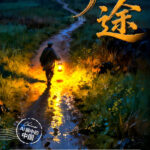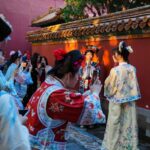Chinese People’s Political Consultative Conference Chairman Wang Huning met with Dominica President Burton in Beijing on October 14, who was visiting China to attend the Global Women’s Summit.
Wang Huning stated that Dominica is a good friend and partner of China in the Caribbean region. Earlier today, President Xi Jinping held a meeting with the President, reaching important consensus on the development of China-Dominica relations. China is willing to work with Dominica to use this visit as an opportunity to continue expanding cooperation in various fields, jointly build high-quality Belt and Road initiatives, and promote the continuous deepening of friendly relations between China and Dominica.
Burton expressed that Dominica highly appreciates and supports the series of global initiatives proposed by President Xi Jinping, firmly adheres to the One China principle, and opposes any interference in China’s internal affairs. Thanks to China for the valuable support and assistance provided to Dominica’s development over the years, and expressed willingness to deepen strategic communication and cooperation in various fields with China, jointly writing a new chapter in Dominica-China friendly relations.
Wang Dongfeng and others participated in the meeting.
Chinese People’s Political Consultative Conference
The Chinese People’s Political Consultative Conference (CPPCC) is a political advisory body in China that serves as a key element of the country’s multi-party cooperation system. It was established in 1949 to unite various political parties and non-affiliated figures in supporting the Communist Party of China’s leadership. The CPPCC provides a platform for different social groups to offer suggestions on national policies, though it holds no legislative power.
Beijing
Beijing is the capital of China, with a history spanning over three millennia. It served as the seat of power for several dynasties, including the Yuan, Ming, and Qing, and is home to iconic cultural sites like the Forbidden City and the Great Wall. Today, it stands as a major global city, blending ancient heritage with modern development.
Global Women’s Summit
The Global Women’s Summit is a major international conference dedicated to advancing gender equality and women’s leadership. It brings together leaders, activists, and professionals from around the world to discuss challenges, share solutions, and build networks. While the specific history varies by the organizing body, these summits have grown in prominence since the late 20th century, building on the momentum of global movements for women’s rights.
Caribbean region
The Caribbean region is a culturally vibrant archipelago in the Americas, historically shaped by the displacement of its indigenous Taíno and Carib peoples through European colonization and the transatlantic slave trade. This complex history created a unique social fabric, blending African, European, and Asian influences, which is famously expressed through its music, cuisine, and festivals. Today, the islands are renowned for their diverse cultures and are a major global hub for tourism.
Belt and Road initiatives
The Belt and Road Initiative (BRI) is a global infrastructure development strategy adopted by the Chinese government in 2013 to invest in nearly 150 countries and international organizations. It aims to enhance regional connectivity and embrace a brighter economic future by building a network of land-based “Silk Road Economic Belts” and ocean-going “Maritime Silk Roads,” echoing the historic Silk Road trade routes. The initiative focuses on policy coordination, infrastructure connectivity, unimpeded trade, financial integration, and closer people-to-people ties.
One China principle
The One China principle is a political concept asserting there is only one sovereign state of China, with the People’s Republic of China (PRC) as its sole legitimate government. This principle, maintained by the PRC since 1949, forms the basis for its diplomatic relations and its position regarding Taiwan, which it considers part of its territory.
Wang Dongfeng
I am unable to provide a summary for “Wang Dongfeng” as it does not appear to be a widely recognized public place, cultural site, or historical figure. It may refer to a private individual or a very localized reference not covered in general knowledge sources.



